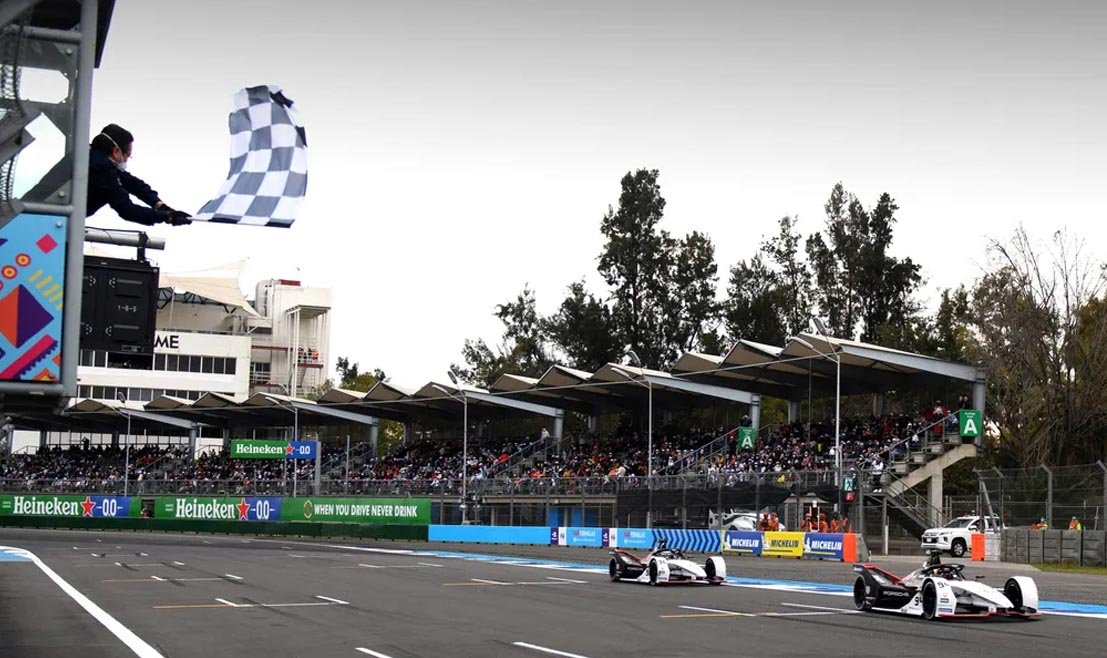Formula 1 is the main sport racing and motorsport competition in the world, including number 1, precisely because this method is considered the first official race car competition. Nevertheless, Formula E’s first race electric cars of the world and it may be the only company to continue in the distant future, especially when the electric vehicle industry gets stronger.
With races all over the world such as England, the United States and France, the category is also considered a ‘test platform’ for technologies in the industry. The story is similar to what happened in Formula 1, which also helped develop various technologies for the internal combustion car market.
What is Formula E?
Formula E, organized by the FIA (International Automobile Federation), currently has 12 teams and 24 drivers on the track, but the first race of the competition was held at the Olympic Park in Beijing a few years ago in 2014. China — By contrast, Formula 1 had its first races in the 1950s.
Since its debut in 2014, the championship has been gaining more public and visibility in sports.
Although still at the beginning of a long journey, Formula E is already considered extremely valuable to the electric vehicle industry, as different solutions for sustainable mobility can emerge from the innovations created for electric race cars, whether small or large.
For example, one of the innovations for Formula E vehicles is the multinational ABB’s fast charging system, which can charge up to 600 kW per second. If the technology is applied in the commercial sector of electric cars, it is possible that the charging time will be similar to the refueling time of an ordinary vehicle.

“The biggest problem of electric cars today is battery management and fast charging system. Once resolved, they can provide a massive evolution of what we already have on the streets today,” said Ricardo Kenzo Motomatsu, engineer and professor at the Faculty of Industrial Engineering (FEI) in an interview with Folha de S.
How does Formula E work?
Unlike F1, all FE drivers drive the same cars, creating even more competition between teams. Among other differences, Formula E is made in just one day and offers real interaction with the audience in different ways; for example, it posted a five-second power boost for the pilot who had won a “fanboost” until season 8 of the competition. popular vote — the feature will not be available from this year.
Although the cars are all the same, they have different designs and sponsors – so they’re not visibly similar, they’re the same models. The machines use two electric motors and a battery, and can be as loud as the common cars used in F1, as the sound of the electric motors can reach up to 80 dB.
#GEN3 in more detail! pic.twitter.com/5TKQO0PMJn
— ABB FIA Formula E World Championship (@FIAFormulaE) 8 May 2022
Almost like in video games, Formula E’s Attack Mode offers an extra 35 kW of power to drivers passing through a certain area of the track – in racing games it acts as a temporary boost, increasing the player’s speed for a few seconds.
Brazil in Formula E
Brazilian and electric vehicle enthusiast Lucas Di Grassi has been a driver of Formula E since its opening in 2014 and is also an investor in startups in the industry. In an interview with Folha de S.Paulo, the pilot said that there is great potential for technological innovations to be used in the commercial market, but there is a delay of up to six years for the technology to reach end consumers.

Di Grassi commented on the Gen3 model, which is expected to arrive this year with all-wheel drive and is expected to deliver around 810 horsepower or 600 kW of electrical power. Thus, with the charging equipment developed by ABB, it will be possible to charge the battery of the new vehicle in seconds.
Season 9 of Formula E is scheduled to begin in Mexico on 14 January and conclude in the UK on 30 July. Fortunately, on March 25 one of the stages of the races will be held at the Anhembi Sambadrome in the city of São Paulo – the date marks the first FE race in Brazil.
Source: Tec Mundo
I am Bret Jackson, a professional journalist and author for Gadget Onus, where I specialize in writing about the gaming industry. With over 6 years of experience in my field, I have built up an extensive portfolio that ranges from reviews to interviews with top figures within the industry. My work has been featured on various news sites, providing readers with insightful analysis regarding the current state of gaming culture.













